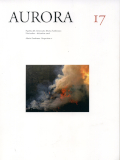Living and Thinking Peace in the World: Maria Zambrano
DOI:
https://doi.org/10.1344/Aurora2016.17.9Keywords:
Peace, war, violence, Kant, subjectivity, will to powerAbstract
For María Zambrano, educating for peace means, above all, working on ourselves, on forming our subjectivity, on shaping what we want to become, or should become. It means also learning to correctly our limits, to situate our real place in the world, knowing that we are not everything and, especially, it means to coming to terms with our vulnerability and with our will to power. The Spanish philosopher relentlessly denounced the deception inherent in the will to power of subjectivity — most of all in that of men — and endeavoured to stress the importance of relations and intersubjectivity in the social fabric that constitutes us. This implies an education for peace that presupposes a personal examination of the conscience and a culture founded on the principle of difference I as different, irreducible to another — and not of similitude — I as every other man.
Downloads
Published
How to Cite
Issue
Section
License
The authors who publish in this journal agree to the following terms:
- Authors retain copyright and grant the journal the right of first publication.
- Texts will be published under a Creative Commons Attribution License that allows others to share the work, provided they include an acknowledgement of the work’s authorship, its initial publication in this journal and the terms of the license.



